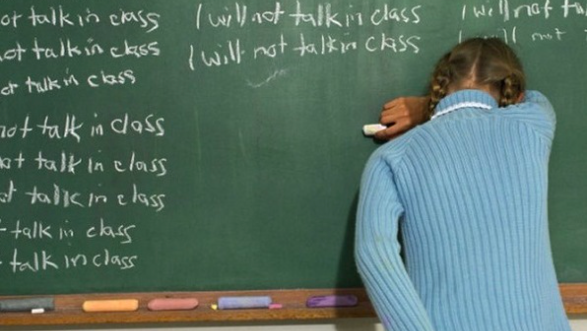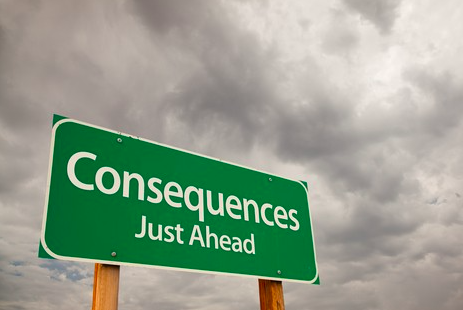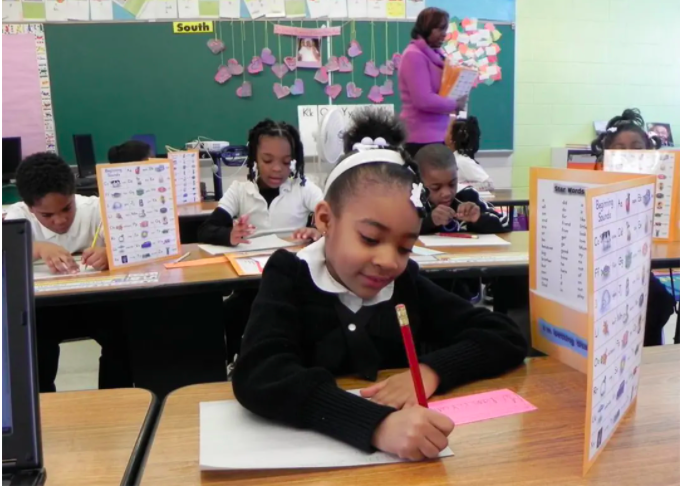In education circles, a common phrase thrown around as we discuss issues of equity is Purpose Over Power! The phrase Purpose Over Power is often used as a compass to guide the decision making process of some schools. It requires that educators think deeply about whether or not the decisions they are making and the systems they design in support of scholar learning and development are grounded in a meaningful purpose that allows for the success and achievement of all stakeholders or simply are the decisions & systems we make grounded in control and power!
The term is most frequently used when discussing discipline systems and policies but the term can and should be used to apply broadly to all issues related to school culture. When we talk about Purpose Over Power the first area we discuss as it’s related to equity is whether or not our systems stifle the culture and identities of our scholars or whether or not it affirms their identities, teaches them the soft skills required for innovation, leadership, and critical thinking and leads to academic achievement. We tend to focus on uniform policies, detention and suspension policies, but the ways in which we stifle the identities of our scholars and staff are not always so straightforward as these.
The Obvious Scenario

Example: Enrique gets to school, his usual eager energetic self. When he gets to school, Principal Regents starts morning arrival by greeting scholars at the door. As Enrique walks up to the threshold of the doors, Principal Regents says, Good Morning Enrique, gives Enrique a once over and says , Enrique you don’t have on the correct belt or shoes, where are they? Enrique’s whole mood begins to deflate because he doesn’t have the belt and the shoes and he already knows what’s coming next. Principal Regent looks with disapproving eyes and says, well we will have to call home and you won’t be able to go to class until your parents or a caregiver can come with the necessary uniform pieces. Enrique is now going to miss learning, all because he’s missing uniform pieces. And these uniform pieces boost his learning, how? This arrival procedure is grounded in Power not Purpose.
The Not So Obvious Scenario
True moments when we need to analyze Purpose Over Power are not necessarily in those popular go to moments: the systems we implement around issues such as school uniform, a token economy behavior system and detention systems but in some of our daily goings on in class and the policies that we don’t allow all stakeholders to weigh in on. You know the ones, the decisions that are made solely by leadership teams, school boards and networks or by the individual classroom teacher. It’s in these moments when the sting of Power Over Purpose is most felt.
Example: It’s time for our daily Guided Reading Circle. Regina slowly shuffles over to the circle area with her guided reading book. As she drags herself to the circle, Ms. Board says, Regina, move with urgency, we have a lot of work to do. Regina takes her seat but with no more urgency than before she started. Ms. Board gives an eye roll but continues. As the story begins, Ms. Board starts off the lesson with a series of questions to recap yesterday’s events. Regina, vigorously raises her hand. Ms. Board calls on her thinking she’s going to answer the question. Regina says, Can I go to the bathroom? Ms. Board says, no you need to answer the question. . Regina becomes visibly flustered, crosses her arms and refuses to speak. Ms. Board restates the question, Regina remains silent. Ms. Board moves on and asks the same question to another scholar. Regina, frustrated, asks again, Can I go to the bathroom. Ms. Board says, No, not until you participate in the lesson. Regina, eventually explodes to the point of needing to be removed from class. The question I would ask is why couldn’t Regina go to the bathroom, why was there a price to attend the restroom? This was an exercise in Power not Purpose.
The Other Decisions

Now while it is important that we look into the more overt areas where injustice can and often does happen ,the most damage is done in the areas where we try to limit the amount of folks who are involved in the decision making, in the name of professional discretion. It’s in the things like: Sending the message to young ladies that they are not smart by skipping over them when they can’t immediately yield the correct answer in Math class, or in the school wide decision to allow families to opt out of Black History Month lessons, or in the senseless manner in which we require teachers and scholars to return back to school in the middle of a life threatening pandemic simply to appease politicians and one sided stakeholders. It’s in the moments when we decide to not address the experiences of scholars and staff of color in schools because we cannot relate to or do not value their experiences. The decisions made in these situations are also grounded in Power not Purpose.
Right now thousands of teachers all around the country are being mandated to return to school but they aren’t being given hazard pay as essential workers, they aren’t being given the vaccine during the 1st phase, and while at school they are being required to implement Covid safety procedures, testing, etc… when they aren’t licensed health care workers. They are being asked to return to work in high Covid transmitting communities in the name of an achievement gap, but let’s face it, scholars in the communities where the achievement gap is a thing were behind and would continue to be behind before, during, and after Covid for reasons that have nothing to do with a pandemic but more so are grounded in racism. These decisions are again, grounded in Power and not Purpose.
Making W.I.S.E Decisions

Purpose driven decisions are decisions that allow for all voices to be heard. Purpose driven decisions take into account the impact those decisions will have not just on academics but on the whole person and their quality of life. Purpose driven decisions don’t seek to control but to uplift and empower. Purpose driven decisions are equitable in nature.
How do we ensure that we are making Purpose Driven vs. Power Driven decisions? You can make sure that your systems and decisions are grounded in Purpose by making sure that they are W.I.S.E systems and decisions. W.I.S.E decisions and systems can be developed by reflecting on 4 key question areas:
- W: The Why: Why am I making this decision or designing this system? This is a moment to be extremely honest with yourself. Think about your triggers, biases, and root causes that are fueling current decisions and needs. Why is this decision/system needed or important?
- I: Impact: What is the impact of this decision on myself and all key stakeholders. How does this make me feel and how will it make others feel?
- S: Stakeholders: Who are all the key stakeholders or people who will be impacted by this decision/system? Who are all the people that need to have input or be aware of this decision/system?
- E: Equity: Will this system/decision be equitable for all key stakeholders? What are the expected outcomes and will it improve the quality of everyone’s life? Will it allow for equal access to opportunity and shared outcomes?
Whenever you are designing a classroom procedure or routine, if you are having challenges with a student and are thinking through the best way to support, or if there’s a school-wide system or initiative that you are considering reflecting on the W.I.S.E way is step in the right direction towards more Purpose Driven systems and decisions.



10 thoughts on “Purpose Over Power”
Wow, I’m so impressed by your writing. I love what you have to say and the way you say it! Thank you for such great information and I hope you have GREAT success. God bless,
Hello Dawn, Thank you so much! I really appreciate the support.
I’ll keep this in mind when the school year starts back up! Thanks!
Thanks Kayla, I hope this was helpful.
Oh my! This was filled with so many things to think about. However, my one takeaway is that decisions should not be based on power but on achieving a positive outcome for all. Especially for the children. How they are treated today will have a lasting impact on their future. I had many teachers that impacted my positive future. I salute them all. Thanks so much for sharing your thoughts and insights.
Hello Sabrina, Thank you for stopping by. I appreciate your takeaway. That is exactly what I was hoping to convey that in order to ensure that our scholars receive a quality education and that schools are truly the beacon of learning that we envision them to be, decisions can’t be made in isolation or in the hands of those perceived to have power.
You definitely have given educators like myself something to think about. I have my students create a class constitution the first week of school so that they are stakeholders in living up to the standards that they set for themselves. When I hear them refer back to the constitution later in the year, it makes me proud to know that they have internalized it because it means something to them.
Hello Maureen,
Thanks for stopping by. I like the class constitution as a means to ensure scholar voice. It’s a really great opportunity for scholars to take ownership of the classroom environment and to feel like they have a say in the way the class is run. Awesome.
Great post! For some reason I have never heard of the phrase “Purpose Over Power” and I’m an educator… I do my best to be a fair and inclusive teacher in my classroom. Unfortunately, we have a lot of work to do in education and it needs to start with both teacher and students having input in policy making.
Hello Sapphire,
Thank you for stopping by and I totally agree, teachers and students are the heart of our education system, yet they currently have the least say over what happens in schools, and in order for there to be equitable change within our school systems, they need the opportunity to have a voice in school policy.